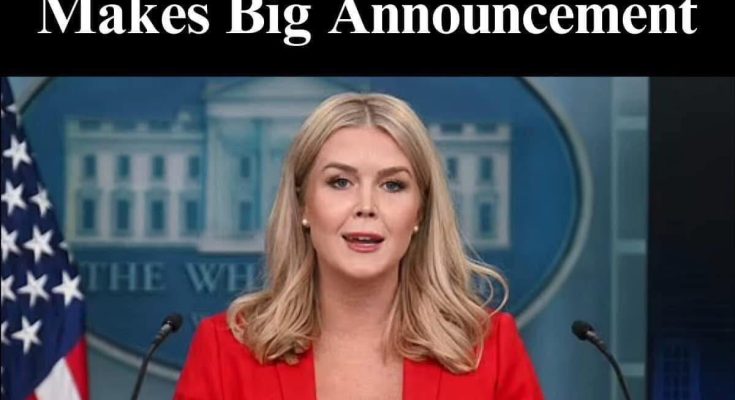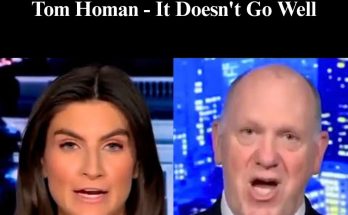President Donald Trump’s administration said Tuesday that the White House Correspondents Association will no longer decide which news outlets get special access to the White House and the briefing room.
Karoline Leavitt, the press secretary for the White House, says that the White House press team will now decide who gets access and how often. This ends decades of WHCA dominance.
Leavitt made it clear that the five major TV networks will still be used to show White House events and that legacy media outlets that have been important to the WHCA will still be present at briefings.
“I am proud to announce that we are going to give the power back to the people who read your papers, who watch your television shows, and who listen to your radio stations. Moving forward, the White House press pool will be determined by the White House press team. Legacy outlets who have participated in the press pool for decades will still be allowed to join, fear not. But we will also be offering the privilege to well-deserving outlets who have never been allowed to share in this awesome responsibility,” Leavitt told reporters during Tuesday’s briefing.
The announcement comes just a few days after The Associated Press sued the Trump White House for not letting them into the briefing room, Air Force One, and other private areas. On Monday, a federal judge agreed with the White House.
Leavitt said the WHCA stood for a small group of “DC journalists” who didn’t represent the news media landscape or how Americans get their news anymore.
“A select group of D.C.-based journalists should no longer have a monopoly over the privilege of press access at the White House. All journalists, outlets, and voices deserve a seat at this highly coveted table,” Leavitt said.
WHCA president Eugene Daniels — a former Kamala Harris campaign worker who also announced on Tuesday that he would be joining MSNBC as a host — criticized the White House in a statement.
Daniels claimed that the White House decision “tears at the independence of a free press in the United States” and “suggests the government will choose the journalists who cover the president. In a free country, leaders must not be able to choose their own press corps.”
The Trump White House had already added a “new media seat” to the briefing room to give more news outlets a chance to be there. At Tuesday’s briefing, someone from the digital news site Semafor was present.
Last week, the White House wouldn’t let The Associated Press into the Oval Office or on Air Force One because the news organization wouldn’t change the name of the “Gulf of Mexico” to the “Gulf of America.”
White House Deputy Chief of Staff Taylor Budowich wrote on X: “The Associated Press continues to ignore the lawful geographic name change of the Gulf of America. This decision is not just divisive, but it also exposes the Associated Press’ commitment to misinformation. While their right to irresponsible and dishonest reporting is protected by the First Amendment, it does not ensure their privilege of unfettered access to limited spaces, like the Oval Office and Air Force One.”
“Going forward, that space will now be opened up to the many thousands of reporters who have been barred from covering these intimate areas of the administration. Associated Press journalists and photographers will retain their credentials to the White House complex,” Budowich continued.
Julie Pace, senior vice president and executive editor of the Associated Press, wrote to Susie Wiles, chief of staff at the White House, last week after a reporter was not allowed to go to a White House event.
“The actions taken by this White House were plainly intended to punish the AP for the content of its speech,” Pace wrote, according to an AP report. “It is among the most basic tenets of the First Amendment that the government cannot retaliate against the public or the press for what they say.”


